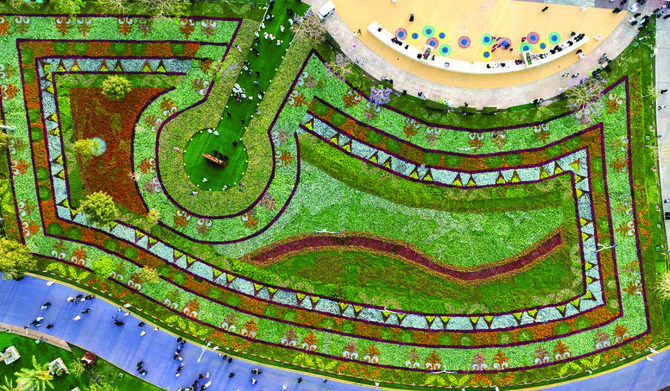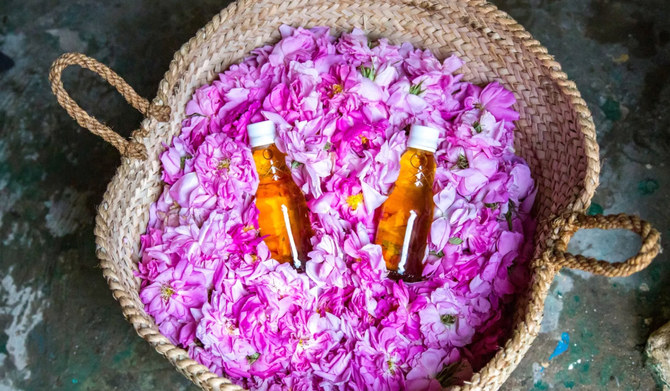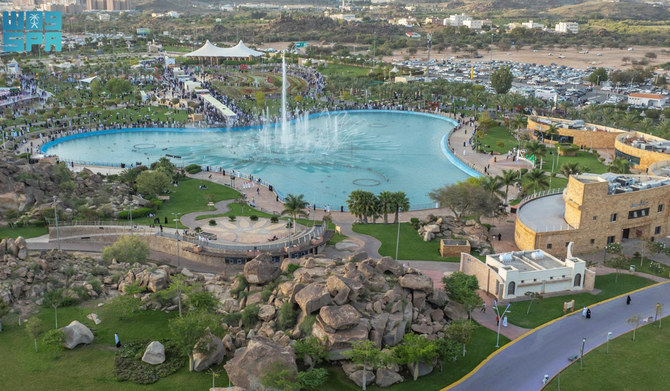JEDDAH: Visitors are flocking to the 19th Taif Rose Festival at Al-Raddaf Park where the flowers are in full bloom, highlighting the region’s rich floral heritage.
The festival, themed “Qetaf” meaning “picking time,” coincides with the harvest season and will run until May 12. The organizers include the Taif Rose Cooperative Society and Taif Municipality.
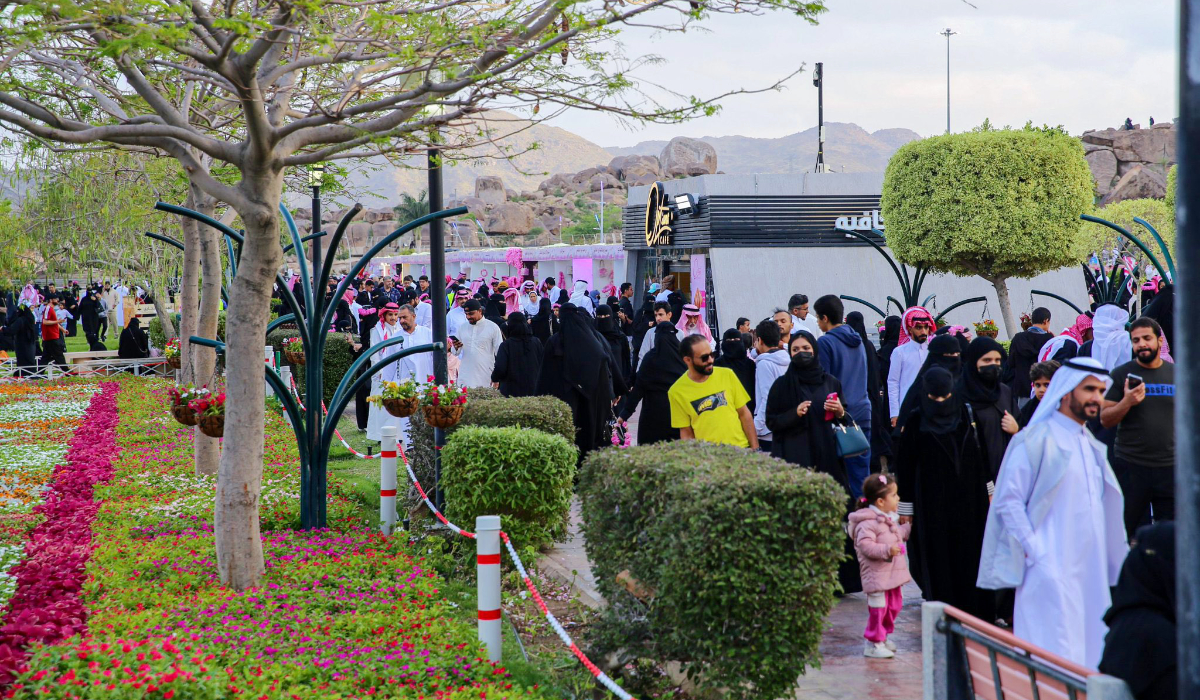
The 19th Taif Rose Festival, themed ‘Qetaf’ meaning ‘Picking Time,’ coincides with the harvest season and will run until May 12. (SPA)
There has been an impressive turnout of Taif residents and domestic and international tourists. The exhibitors — mostly farmers and vendors — are optimistic that increased revenues will help boost rose cultivation and production.
Abdullah Altwairqi, a local farmer and festival participant, said: “Participating in the Taif Rose Festival has become a tradition for me. The atmosphere improves each year, and the revenue and exposure we receive from visitors make it worthwhile.”
HIGHLIGHTS
• Exhibitors at the Taif Rose Festival are optimistic that increased revenues will help boost rose cultivation and production.
• The flower carpet set up by the municipality in the center of the park was designed with decorative patterns inspired by the province’s heritage.
• It covers 5,206 square meters and was crafted using over a million flower and rose seedlings, making it the largest in the history of the festival.
At his booth, Altwairqi showcased various flowers and fruit, including Taif roses, peaches, prickly pears, figs, mulberries, grapes, blackberries, pomegranates, as well as aromatic plants.

The 19th Taif Rose Festival, themed ‘Qetaf’ meaning ‘Picking Time,’ coincides with the harvest season and will run until May 12. (SPA)
Altwairqi urged people to visit the Rose Flavor cafe where they can savor hot and cold beverages infused with the flavor of Taif roses and other aromatic flowers including lavender, which is also abundant in the region.
The flower carpet set up by the municipality in the center of the park left visitors awestruck. Covering 5,206 square meters, it was crafted using over a million flower and rose seedlings, making it the largest in the history of the festival.
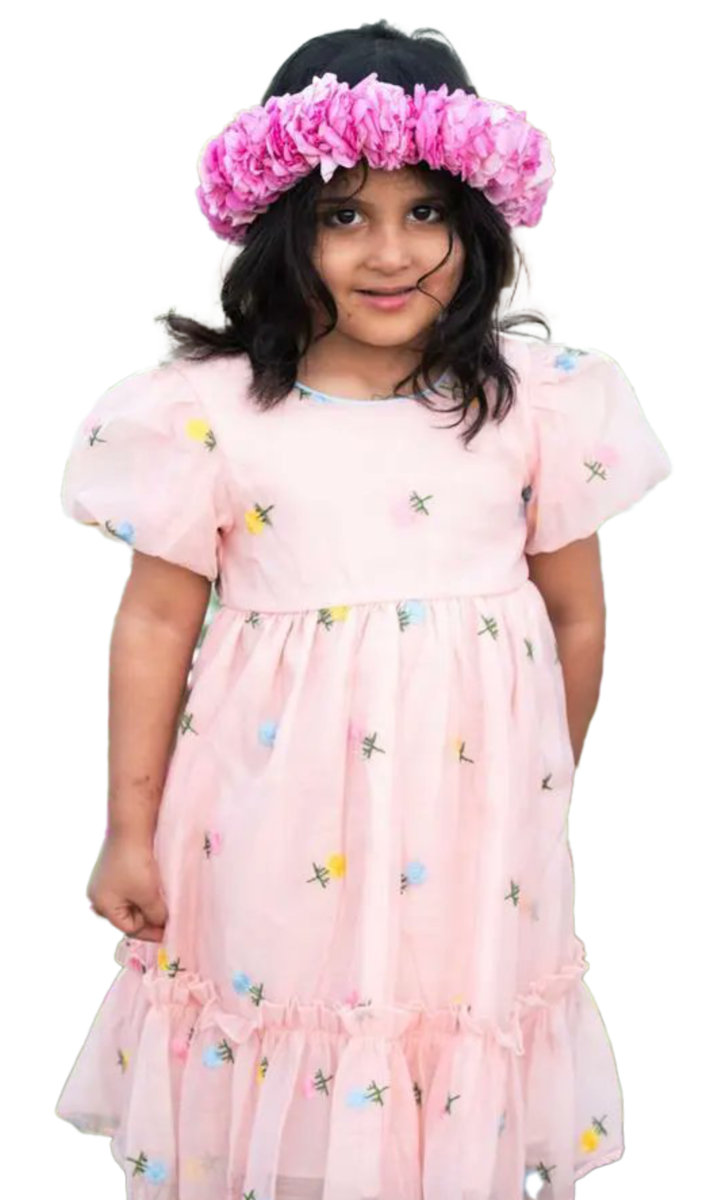
The 19th Taif Rose Festival, themed ‘Qetaf’ meaning ‘Picking Time,’ coincides with the harvest season and will run until May 12. (SPA)
Faiz Al-Thibaiti, director-general of media and corporate communication at Taif Municipality, told Arab News: “The flower carpet was designed with decorative patterns inspired by the province’s heritage.”
He said the carpet has ensured the event has become “one of the most important tourism festivals in the Kingdom, attracting thousands of visitors and tourists from various regions of the country.”
NUMBER
70k
The rose-picking season in Taif starts around the end of March or early April, lasting between 35 to 45 days, with an average of 70,000 roses picked daily.
The decorations adorning the flower carpet draw inspiration from the intricate designs found on the walls and facades of Taif’s ancient structures, including Al-Kaki Palace in Al-Salama and King Saud Palace.

The 19th Taif Rose Festival, themed ‘Qetaf’ meaning ‘Picking Time,’ coincides with the harvest season and will run until May 12. (SPA)
Al-Thibaiti added: “Preparations for the festival started early, with the Taif Rose Cooperative Society detailing participation criteria to highlight Taif roses, including their cultivation, harvesting, and distillation into fine perfumes. This adds to Taif’s unique tourist appeal. The festival provides a platform for producers, experts, and entrepreneurs to connect, collaborate, and boost this important sector.”
Among the highlights are the rose and flower path, product stalls, goods market, government booths, and the agricultural nursery.
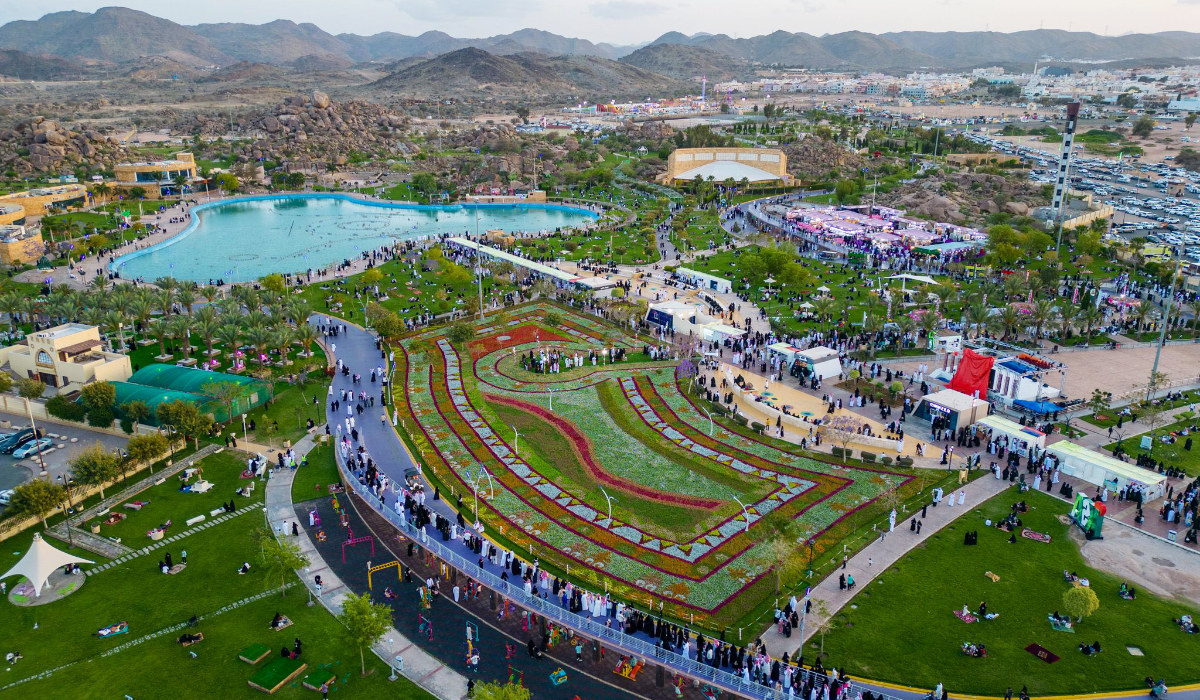
The gaint flower and rose carpet, spanning 5206 square meters, was meticulously crafted using 1,026,491 diverse flower and rose seedlings. (Supplied)
Interactive fountain shows accompanied by national tunes were also among the attractions, with a crossing to the upper pedestrian bridge from where visitors can view the massive flower carpet.
Artwork, flower arrangements, and hanging floral baskets scattered throughout the park added to the flair of the event.
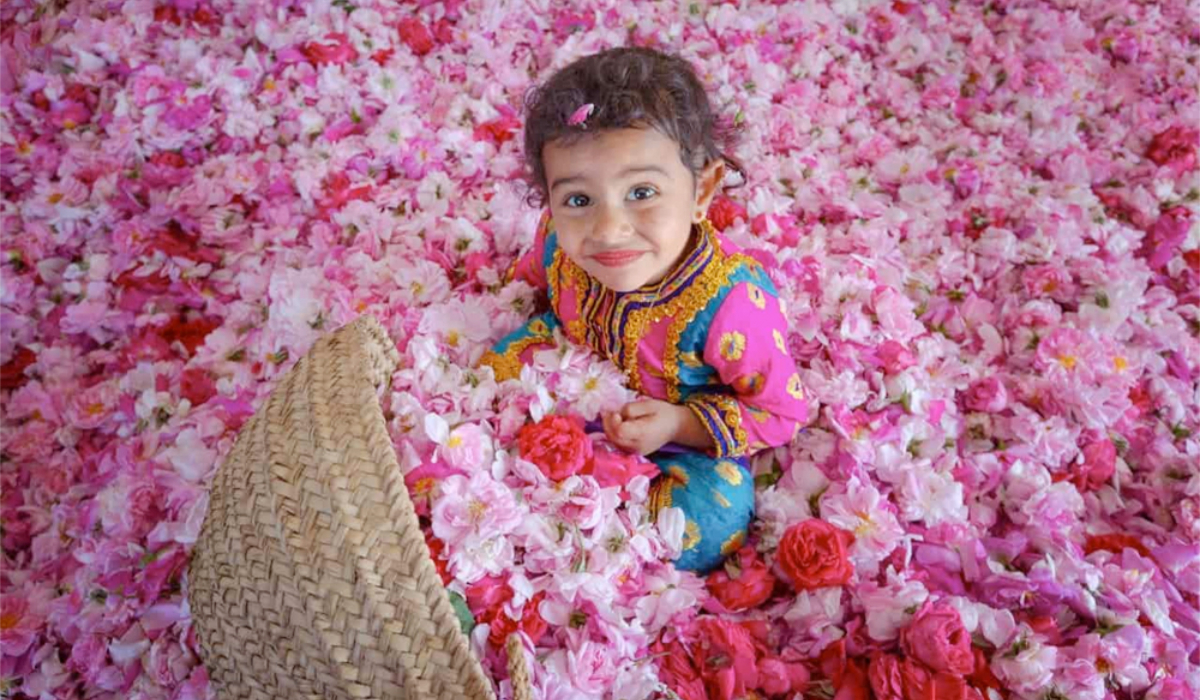
The 19th Taif Rose Festival, themed ‘Qetaf’ meaning ‘Picking Time,’ coincides with the harvest season and will run until May 12. (SPA)
Al-Thibaiti said: “The significant turnout at the current festival comes amid increasing rose production year after year, indicating the success of this agricultural sector in achieving high revenues while continuing to promote the Taif rose product.”
Taifrosethon
The five-day Taifrosethon began on May 7, which is being held to encourage entrepreneurship in the region with technological solutions to enrich the industry.
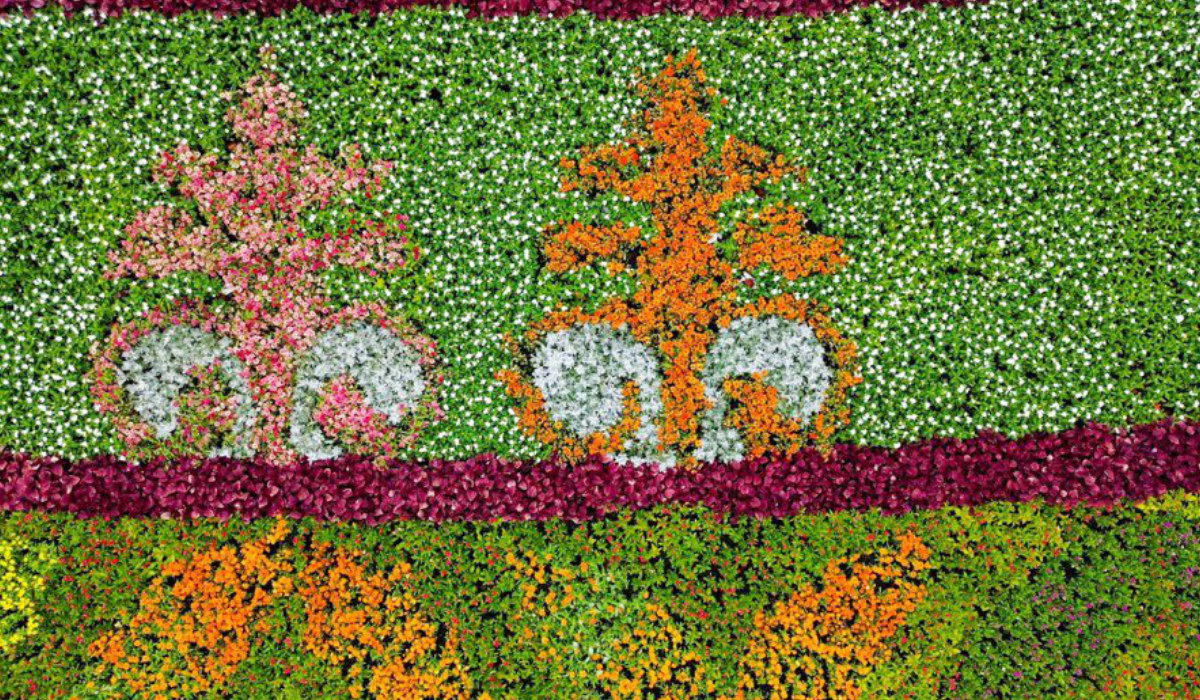
The flower carpet was designed with decorative patterns inspired by the province's heritage. (Supplied)
The event includes various skills training and technical workshops covering trade, cultural heritage, and tourism.
The top-three winners will receive $2,666, $1,866 and $1,333 respectively. Participants are required to enter as teams, each with three to five members.
Taif’s roses
The Taif province produces more than 200 million roses each season. According to the local chamber of industry, each tree produces an average of 250 roses daily throughout the harvest season, which lasts for about 45 days.
The rose-picking season starts around the end of March or early April, lasting between 35 to 45 days, with an average of 70,000 roses picked daily.
Taif roses feature an exquisite, sweet fragrance and vibrant pink hues on delicate petals, and are a hallmark of the region’s natural beauty.
Cultivated in the high-altitude climate of Taif, these roses thrive in the cool temperatures and fertile soil of the region.
They are meticulously harvested by hand to preserve their quality, with the petals carefully collected for various purposes.


